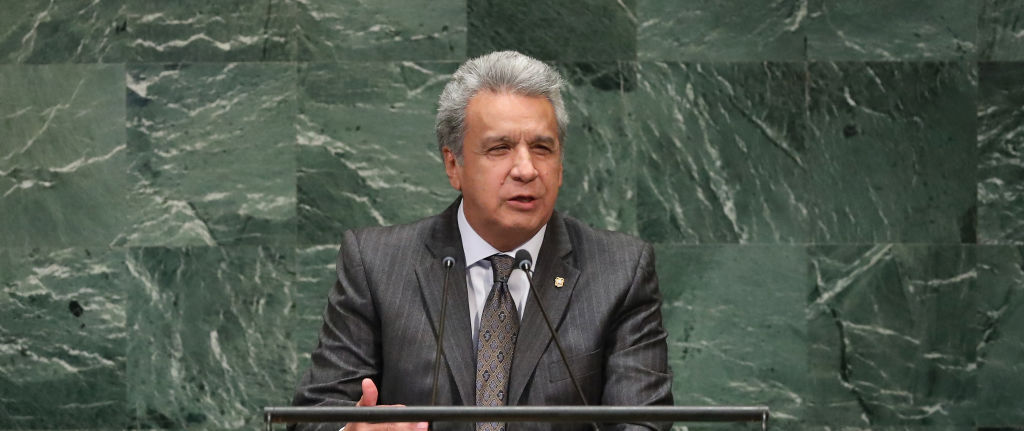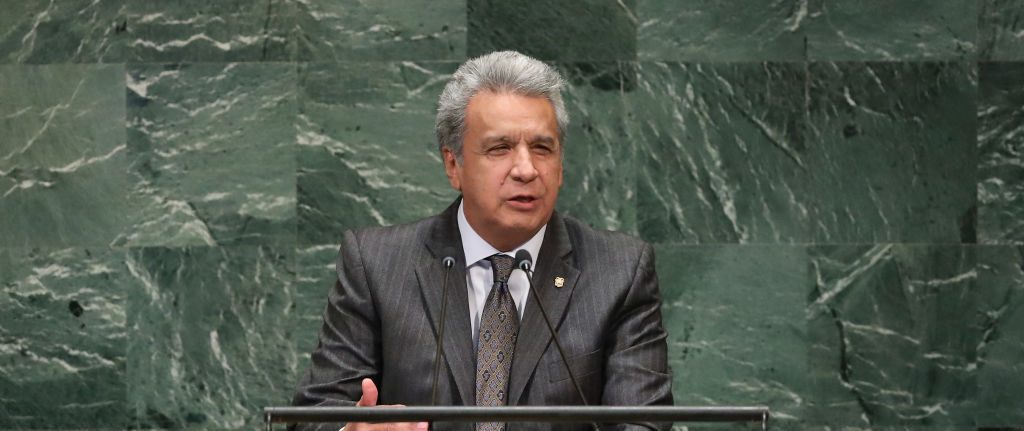In Sunday’s runoff election in Ecuador, opposition candidate and former banker Guillermo Lasso expected a victory. After all, three exit polls showed he held a six-point lead over Lenín Moreno, who previously served as a vice president for President Rafael Correa. But by Sunday night many outlets had declared Moreno victorious – or they have at least reported that he’s well on his way to winning. With 97 percent of the votes counted, Moreno leads by a narrow margin – 51 percent to 49 percent, which is why Santiago Basabe, a political scientist with Latin American Faculty of Social Sciences, calls this the closest race in recent history. “I don’t think we’ve ever had such a close election, so hard-fought with such a high level of uncertainty among the population,” he told The Guardian.
On Sunday night, Moreno’s supporters waved the lime green flags of the Alianza País coalition, as he – joined by Correa and VP Jorge Glas – celebrated. “We know how to hear the criticisms,” he said, referencing his opponents. “Let’s work together in peace and harmony.” Lasso’s supporters, however, headed to the electoral council headquarters and chanted: “We don’t want fraud, we want democracy.” Lasso – who believes the inconsistencies between the polls and the results signal to voter fraud – has called for a recount. “This is sickening,” he said. “We’re not going to allow it. They’ve crossed a line.”
As right-leaning governments have taken shape in South America – particularly in Argentina, Brazil, and Peru – this election was crucial for Latin America’s left. Daniel Shaw, a professor of Latin American and Caribbean Studies at the City University of New York, explained that this election is deciding the fate of all of Latin America. “The US has such a long history of meddling in Latin American countries from Chile to Nicaragua, from Venezuela to Ecuador,” he said. “They are against what Rafael Correa and Lenín Moreno represent. Correa very historically and heroically insisted that the US close their military base in Manta, kicked out many US diplomats with links to the CIA, and has functioned as another anti-imperialist in Latin America. And this is the reason they are against him.”
While Venezuelan President Nicolás Maduro and Bolivian President Evo Morales used Twitter to congratulate Moreno, Julian Assange used the social media platform to revel in Lasso’s defeat.
The fate of Wikileaks founder Assange certainly hinged on the election. Before the election, Lasso promised to evict Assange from the Ecuadorean Embassy in London that he has lived in since June 19, 2012. Assange, who’s wanted for questioning in a 2010 rape allegation in Sweden, went on self-imposed exile and Ecuador granted him asylum. Lasso intended to expel Assange within 30 days of his presidency. So when reports came in that Moreno won, Assange fired off a tweet. “I cordially invite Lasso to leave Ecuador within 30 days (with or without his tax haven millions),” he wrote.
https://twitter.com/JulianAssange/status/848713997302059008
Recently, an Argentine paper reported that it had proof that Lasso hid his monetary gains in an offshore account as the country felt the effects of the financial crises and inflation. Though Lasso denied the reports, he never could shake the suspicions about his background as a banker.




